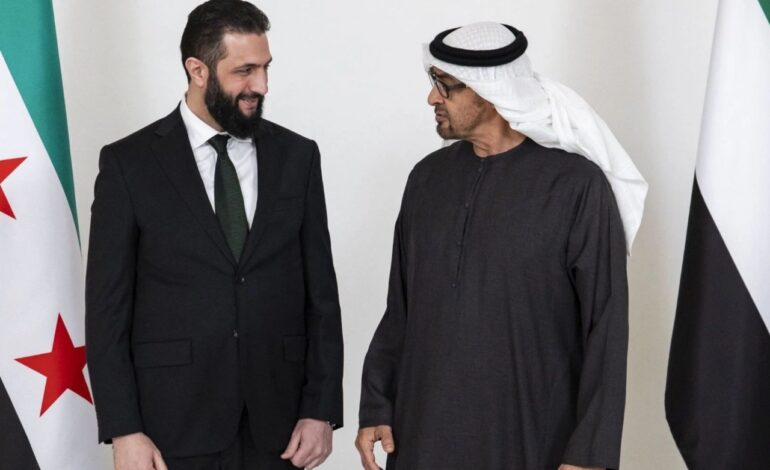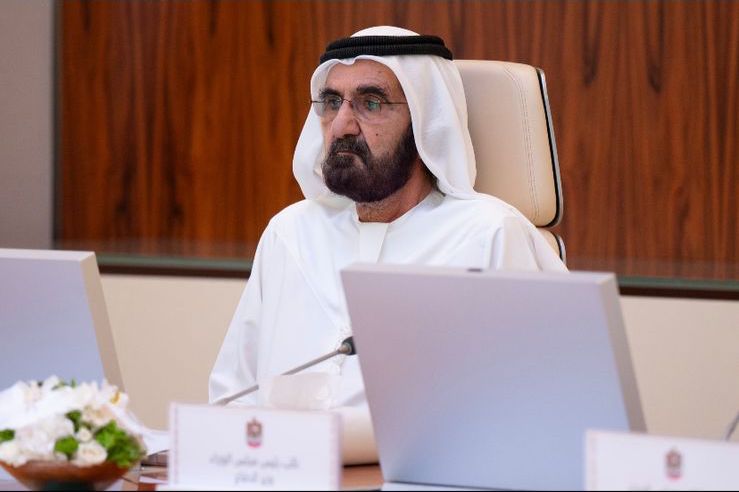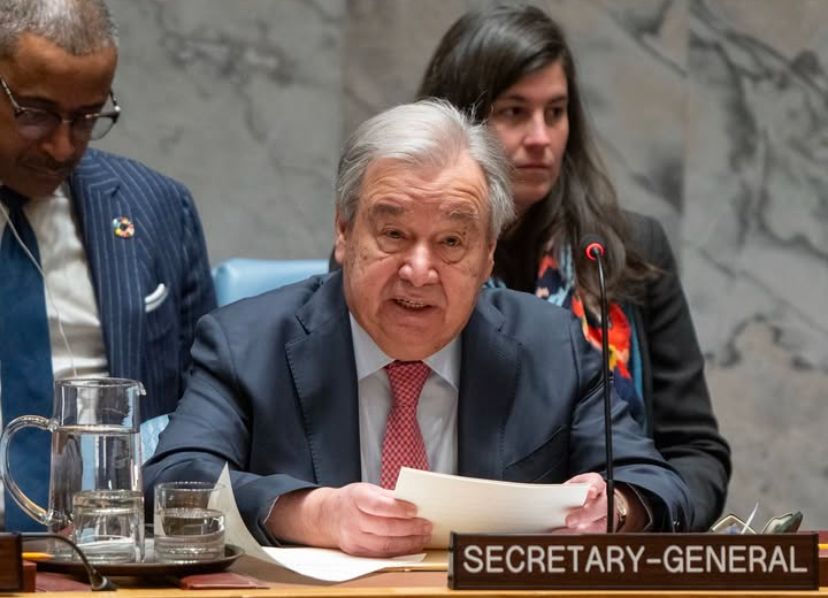UAE and Syria Strengthen Ties in Key Leaders’ Phone Discussion

In a strategic diplomatic dialogue that reinforces deepening Arab unity, President His Highness Sheikh Mohamed bin Zayed Al Nahyan of the United Arab Emirates spoke by phone with His Excellency Ahmed Al-Sharaa, President of the Syrian Arab Republic. This high-level call highlighted the strengthening of UAE-Syria relations and emphasized a shared commitment to regional peace, political stability, and long-term development.
As Syria navigates its path to recovery after years of conflict, the UAE continues to play a key role as a diplomatic and humanitarian partner. The discussion between the two leaders marks another significant chapter in the restoration of regional cooperation, underlining a renewed vision for Arab solidarity amid evolving global challenges.
Strengthening Bilateral Relations Between UAE and Syria
UAE-Syria relations have seen renewed momentum in recent years, grounded in a history of cultural, religious, and diplomatic ties. The phone call between President Sheikh Mohamed and President Al-Sharaa reflects the latest advancement in these relations, with a shared vision of enhanced cooperation and mutual benefit.
The two presidents discussed the status of bilateral relations and explored avenues to deepen collaboration. Areas of focus included economic investment, infrastructure development, energy, and education. The UAE leadership reaffirmed its strategic commitment to supporting Syria’s reintegration into regional frameworks and contributing to its national rebuilding efforts.
President Sheikh Mohamed highlighted the UAE’s role as a dependable regional ally, committed to helping Syria regain stability and growth. In return, President Al-Sharaa acknowledged the UAE’s principled approach to diplomacy, welcoming initiatives that promote joint projects and people-to-people engagement between the two nations.
Shared Commitment to Regional Stability and Arab Unity
The conversation between the UAE and Syrian presidents also addressed broader regional challenges and the need for Arab nations to adopt a collective, strategic vision for the future. With conflicts and economic pressures impacting large parts of the Middle East, both leaders stressed the value of regional dialogue and joint action.
They explored topics such as conflict resolution, national sovereignty, and economic resilience, noting that true peace is achieved not only through diplomacy but also through developmental opportunities. The UAE reiterated its position on resolving regional crises through non-intervention, multilateral cooperation, and constructive partnerships.
President Al-Sharaa praised the UAE’s balanced foreign policy and its efforts to de-escalate tensions in the Middle East. He noted Syria’s readiness to collaborate with the UAE and other Arab nations to shape a regional environment rooted in mutual respect, peace, and security.
UAE’s Humanitarian Role and Support for Syrian Recovery
One of the cornerstones of UAE-Syria relations is the UAE’s continued humanitarian support for the Syrian people. Over the past decade, the UAE has provided extensive aid to Syria, responding to both the humanitarian crisis caused by war and the devastation from natural disasters such as earthquakes.
During the call, President Sheikh Mohamed reassured his Syrian counterpart that the UAE remains committed to long-term humanitarian and developmental assistance. From supplying medical aid and food relief to funding reconstruction and healthcare initiatives, the UAE has been a constant partner in Syria’s journey toward recovery.
President Al-Sharaa expressed deep gratitude for the UAE’s consistent support, recognizing the country’s neutrality and generosity. He acknowledged that Emirati assistance has positively impacted countless Syrian families and helped restore hope during periods of hardship. The Syrian leader emphasized that such support reinforces bilateral trust and contributes to regional solidarity.
Advancing Regional Diplomacy Amid Ongoing Tensions
As regional powers navigate an increasingly complex geopolitical environment, the UAE has established itself as a reliable mediator and a champion of diplomatic engagement. President Sheikh Mohamed reiterated that dialogue is the UAE’s preferred tool for resolving conflicts and ensuring long-term regional stability.
The leaders discussed the escalating challenges facing the region, including conflicts in Palestine and Yemen, energy instability, and climate change. Both stressed that Arab countries must strengthen institutional mechanisms for cooperation and work collectively to address common threats.
President Al-Sharaa commended the UAE’s role in promoting regional peace through mediation and non-alignment. He confirmed Syria’s support for efforts aimed at fostering greater Arab collaboration, and for the creation of frameworks that promote peace, economic sustainability, and regional integration.
Economic Cooperation as a Pillar of Post-Conflict Recovery
Economic collaboration was a key component of the leaders’ dialogue. Syria’s economy has faced massive disruptions due to years of war, with infrastructure damage, currency devaluation, and limited investment contributing to widespread economic hardship. The UAE has expressed readiness to help Syria rebuild its economy through sustainable, forward-looking partnerships.
President Sheikh Mohamed outlined a vision of strategic investment in Syria’s key sectors, including agriculture, logistics, technology, and renewable energy. He highlighted opportunities for Emirati companies to engage in public-private partnerships that create jobs, boost productivity, and revive industrial activity in Syria.
President Al-Sharaa welcomed the UAE’s willingness to participate in economic regeneration. He mentioned Syria’s plans to facilitate investment by creating favorable legal frameworks, offering incentives to foreign investors, and ensuring transparency in development projects. The leaders agreed that economic cooperation should be inclusive, environmentally sustainable, and built to support Syria’s long-term sovereignty.
Cultural and Educational Cooperation for Long-Term Development
Beyond politics and economics, the UAE and Syria also explored ways to deepen cultural and educational cooperation. Recognizing the transformative power of knowledge and cultural exchange, both presidents emphasized the importance of soft power in rebuilding societies and fostering mutual respect.
President Sheikh Mohamed proposed initiatives such as joint academic research, scholarships for Syrian students in UAE institutions, and heritage preservation programs. He stressed that cultural diplomacy plays an essential role in healing the wounds of conflict and in building bridges between future generations.
President Al-Sharaa responded enthusiastically, highlighting Syria’s rich history and intellectual traditions. He endorsed collaborative educational ventures and cultural exchanges as tools for fostering a more integrated Arab identity. The two leaders discussed launching joint centers of excellence in archaeology, literature, medicine, and digital innovation.
UAE-Syria Dialogue: A Symbol of Strategic Arab Cooperation
The phone call between UAE President Sheikh Mohamed bin Zayed and Syrian President Ahmed Al-Sharaa symbolizes more than just a bilateral interaction; it marks a new era of Arab collaboration rooted in stability, shared responsibility, and mutual growth. Both leaders reaffirmed their commitment to a future where diplomacy, humanitarian support, and economic partnership can rebuild trust and deliver long-lasting peace to the Arab world.







